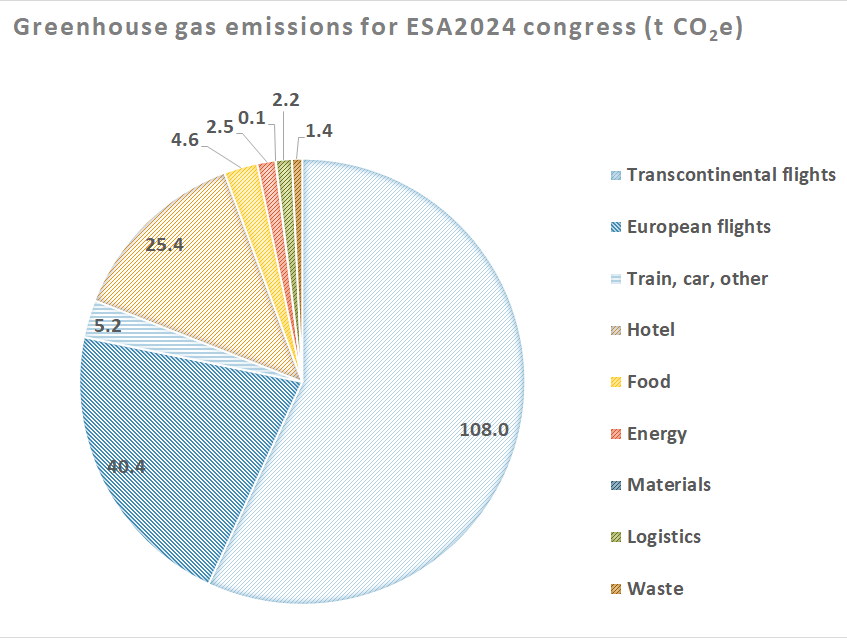An organising team committed to the sustainability of the project
We are working to transform this ESA congress into an environmentally and socially sustainable congress:
- Minimal impact on the global and local environment: transportation, food, waste, goodies
- Promoting diversity, equity and inclusion values
- Fair economy: local and fair trade catering
We hope to inspire you to take positive action with us so that we all make a concerted effort to turn our values into reality.
Carbon footprint of the Congress
As announced, we wanted to organise a sustainable congress. We made some important choices, such as choosing a location within easy reach of Paris by train, working with a local catering company, offering vegetarian meals to all participants (except for the gala dinner), minimising paper and goodies, and reducing waste.
The estimated total greenhouse gas emissions amount to 190 tonnes of CO2 equivalent (t CO2e), or 613 kg CO2e per participant, which is in line with other studies for such congresses, but not better, despite our choices (Neugebauer et al., 2020). Unsurprisingly, the main source of greenhouse gas emissions is the travel of congress participants, accounting for 81% of the total. Accommodation is the second largest source (13%) and food is the third, with 2.4% of the total emissions. It is important to note that transcontinental flights accounted for 70% of total travel emissions for 10% of participants.
There are some uncertainties in this calculation and it only focuses on greenhouse gas emissions. However, this result should make us aware that the most important single lever to reduce our environmental impact is to limit long-distance flights and to attend congresses that can be reached by train whenever possible.

Last update: 2024-10-25, 17:18

